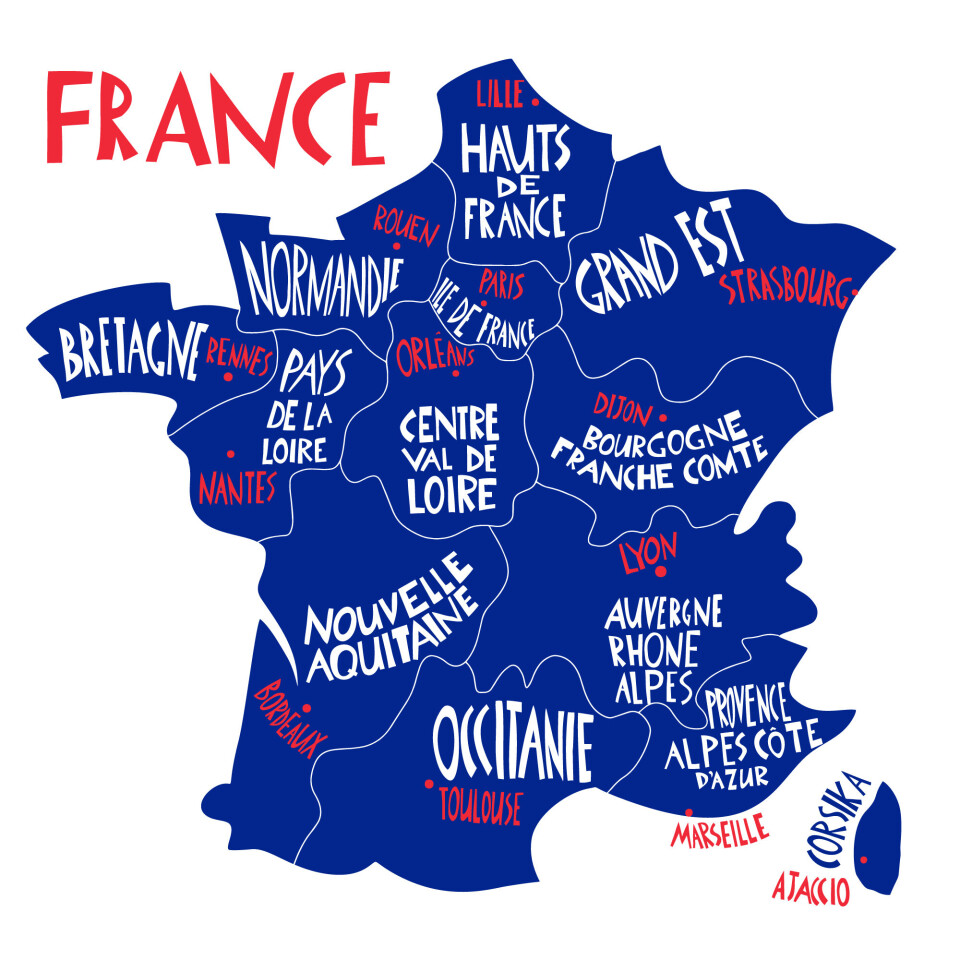-
How can I find out who the owner of a property is in France?
There are a few methods you can use to ascertain ownership
-
Will we have to pay back any of the French Aspa pension top-up money we have received?
Benefit can become repayable after a recipient’s death
-
Does the French 2021 forced heirship law apply to non-residents’ second homes?
Whether it is applicable depends on the family situation
French regions: Where does their budget come from?
France has a decentralised system of powers, with one territorial authority being the regions. We look at where their budget comes from, how they spend the money and who makes the decisions

Reader question: I was reading about my region, Normandy, adopting a new budget for next year, and it made me wonder where the money comes from. Could you explain please?
There are 13 regions in metropolitan France and five other overseas regions. The regions had a combined budget of €34.5billion in 2020 (the latest figures available).
This is €1million less than the 2019 budget.
The money comes from a range of sources, with national taxes re-allocated to the regions the main source. The regions also take money from local taxes, including local business taxes (the CVAE), taxes on vehicle registration certificates (cartes grises), and energy and fuel taxes.
The French state also gives grants to the regions and sometimes loans.
Additionally, the European Commission can also give regions funds directly. This usually amounts to around €2billion per year for France.
What do the regions invest in?
The regions invest mainly in transport and mobility, with that sector making up 24.8% of their 2021 budget.
The other areas they invest in are:
- Teaching (16.2% in 2021)
- Employment, professional training, apprenticeships (11.1% in 2021)
- Economic activity (7.2% in 2021)
- Management of European funds (6% in 2021)
- Land use planning and environment (5.2% in 2021)
- Culture, sport, hobbies (2.9% in 2021)
- Health, social activity (1% in 2021)
- Interregional and European activities (0.2% in 2021)
- General administration (6.2% in 2021)
- Other (19.3% in 2021)
Who is in charge of the regions?
The elected regional president acts as the head of the region. He or she fixes the political priorities, leads debates and is also responsible for the region’s budget.
There are other bodies involved in running the region too, such as the regional assembly, made up of elected officials. The assembly notably votes on their region’s budget plan.
There is also the permanent commission, which is made up of the president, their vice presidents and a certain number of other councillors. This group meets every month and one task is giving a verdict on proposals made by the “thematic commissions”.
The thematic commissions are smaller, dedicated groups that focus on one area of interest, such as transport, culture, economy, etc.
Then there is the regional economic, social and environmental council, known as CESER, which is composed of members representing the region's socio-economic players, such as companies, trade unions, chambers of commerce or agriculture and NGOs. The CESER gives its opinion on the main guidelines of regional policy.
You can read more about the organisation of the regions here.
Find help with navigating life in France with our new Reader Questions newsletter
Sign up for our pick of the week's questions from readers answered by the Connexion team – delivered to your inbox every Saturday.
See what other readers like you are asking including: How often is a rabies shot for dogs required for France-UK travel? Will my French health pass become invalid if I refuse my booster dose? Can foreign residents benefit from France's pension top-up benefit? and more.
Sign up for the free newsletter
























